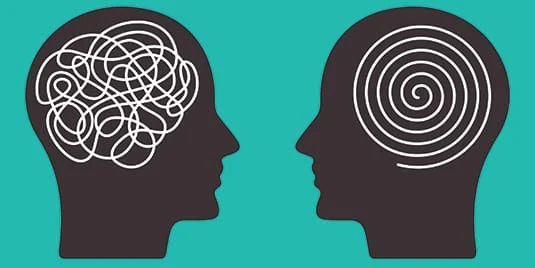Understanding Tardive Dyskinesia


What Is Tardive Dyskinesia?
Tardive dyskinesia is a movement disorder distinguished by a range of involuntary and repetitive muscle movements in the face, neck, arms, and legs.
This neurological disorder is mainly caused by the ongoing use of antipsychotics prescribed to treat mental health conditions like schizophrenia, bipolar disorder, and depression, as well as other psychiatric medications that block dopamine receptors in the brain.
The symptoms of tardive dyskinesia can negatively affect daily function, emotional wellness, and quality of life. Although the research for treating tardive dyskinesia is relatively sparse and prevention is still key, there may be treatment options to carefully consider on an individual basis. There may also be some nonpharmaceutical strategies to help make day-to-day living more comfortable.
Symptoms of Tardive Dyskinesia
Tardive dyskinesia affects the nervous system, and symptoms can include abnormal, involuntary repetitive movements to the following areas of the body:
Face/Head
- Rapid eye blinking, squinting
- Lip smacking, puckering, or pursing
- Tongue movements (sticking out, twisting)
- Mouth movements (grimacing, frowning)
- Jaw clenching, chewing motions
Body
- Neck twisting
- Rocking, shifting, and swaying of torso
- Twisting, twitching, and jerking in arms, hands, legs, and feet
Who Is Affected by Tardive Dyskinesia?
It is estimated that tardive dyskinesia affects at least 500,000 people in the United States.
Individuals more at risk of developing tardive dyskinesia include those using long-term antipsychotic medications (it is thought that second-generation agents have a lower risk than first-generation); being female; older age; African American ethnicity; having negative symptoms of schizophrenia; and having a preexisting mood disorder.
Treatment for Tardive Dyskinesia
Although there have been advances in treatment for tardive dyskinesia, there is still more research to be done on the mechanism and effectiveness of therapies. Overall, each individual responds to treatment differently and treatment options should be carefully considered on an individual basis.
Some research has supported nonpharmaceutical options such as taking Ginko biloba and addressing lifestyle factors such as smoking, substance use, stress, and exercise.
Editorial Sources & Fact-Checking
- Tardive Dyskinesia. National Institute of Neurological Disorders and Stroke.
- Tardive Dyskinesia. National Alliance of Mental Illness.
- About Tardive Dsykinesia. National Organization for Dyskinesia.
- Tardive Dyskinesia. National Institute of Neurological Disorders and Stroke.
- Caroff SN, Yeomans K, Lenderking WR, et al. RE-KINECT: A Prospective Study of the Presence and Healthcare Burden of Tardive Dyskinesia in Clinical Practice Settings. Journal of Clinical Psychopharmacology May-June 2020.
- Zheng W, Xiang YQ, Ng CH, Ungvari GS, Chiu HF, Xiang YT. Extract of Ginkgo biloba for Tardive Dyskinesia: Meta-analysis of Randomized Controlled Trials. Pharmacopsychiatry. May 2016.
Medically Reviewed by Allison Young, MD (June 16, 2022)
Originally posted July 14, 2022
The post Understanding Tardive Dyskinesia appeared first on bpHope.com.